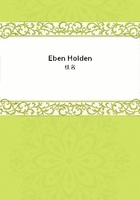
第49章
We have our secrets, but, guard them as we may, it is not long before others have them also. We do much taling without words. I once knew a man who did his drinking secretly and his reeling in public, and thought he was fooling everybody. That shows how much easier it is for one to fool himself than to fool another. What is in a man's heart is on his face, and is shortly written all over him. Therein is a mighty lesson.
Of all people I ever knew Elizabeth Brower had the surest eye for looking into one's soul, and I, myself, have some gift of penetration. I knew shortly that Mrs Brower - wise and prudent woman that she was - had suspected my love for Hope and her love for me, and had told her what she ought to say if I spoke of it The maturity of judgement in Hope's answer must have been the result of much thought and counsel, it seemed to me.
'If you do not speak again I shall know you do not love me any longer,' she had said. They were brave words that stood for something very deep in the character of those people - a self-repression that was sublime, often, in their women. As I said them to myself, those lonely summer days in Faraway, I saw in their sweet significance no hint of the bitterness they were to bring. But God knows I have had my share of pleasure and no more bitterness than I deserved.
It was a lonely summer for me. I had letters from Hope - ten of them - which I still keep and read, often with something of the old pleasure - girlish letters that told of her work and friends, and gave me some sweet counsel and much assurance between the lines.
I travelled in new roads that vacation time. Politics and religion, as well as love, began to interest me. Slavery was looming into the proportion of a great issue, and the stories of cruelty and outrage on the plantations of the South stirred my young blood and made it ready for the letting of battle, in God's time. The speeches in the Senate were read aloud in our sitting-room after supper - the day the Tnbune came - and all lent a tongue to their discussion.
Jed Feary was with us one evening, I remember, when our talk turned into long ways, the end of which I have never found to this day. Elizabeth had been reading of a slave, who, according to the paper, had been whipped to death.
'If God knows 'at such things are bein' done, why don't he stop 'em?' David asked.
'Can't very well,' said Jed Feary.
'Can, if he's omnipotent,' said David.
'That's a bad word - a dangerous one,' said the old poet, dropping his dialect as he spoke. 'It makes God responsible for evil as well as good. The word carries us beyond our depth. It's too big for our boots. I'd ruther think He can do what's doable an' know what's knowable. In the beginning he gave laws to the world an' these laws are unchangeable, or they are not wise an' perfect. If God were to change them He would thereby acknowledge their imperfection. By this law men and races suffer as they struggle upward. But if the law is unchangeable, can it be changed for a better cause even than the relief of a whipped slave? In good time. the law shall punish and relieve. The groans of them that suffer shall hasten it, but there shall be no change in the law. There can be no change in the law.'
'Leetle hard t' tell jest how powerfiil God is,' said Uncle Eb. 'Good deal like tryin' t' weigh Lake Champlain with a quart pail and a pair o' steelyards.'
'If God's laws are unchangeable, what is the use of praying?' I asked.
'He can give us the strength to bear, the will to obey him an' light to guide us,' said the poet. 'I've written out a few lines t' read t' Bill here 'fore he goes off t' college. They have suanthin' t' say on this subject. The poem hints at things he'd ought 'o learn purty soon - if he don't know 'em now.'